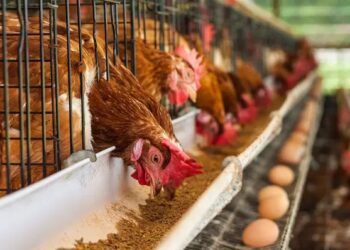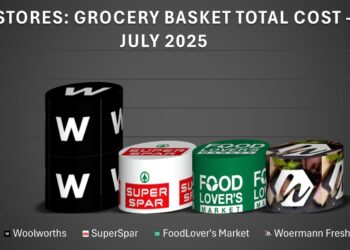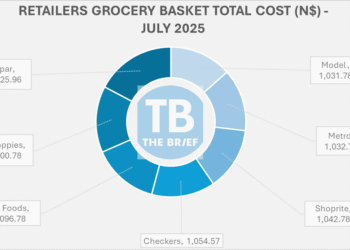
South Africa’s real interest rate is at the lowest level in almost a quarter century, adding to the case for continued aggressive monetary-policy tightening by the central bank on Thursday.
The spread between annual inflation and the nation’s key interest rate widened to 2.65 percentage points in June as consumer-price growth breached the ceiling of the central bank’s target for a second successive month and accelerated to a 13-year high.Â
The gap is the widest since 1998, when the benchmark repurchase rate was introduced, and further erodes the differential that makes local assets attractive to foreign investors.
Even before Wednesday’s inflation data, traders were fully pricing in a second consecutive half-point rate hike this week. Â
Forward-rate agreements, used to speculate on borrowing costs, show investors are also pricing in an 80% chance of a 75-basis-point move and 200 basis points in total by year-end. Of 20 economists in a Bloomberg survey, 13 predict the monetary policy committee will raise the key rate by half a point this week, with the rest expecting a bigger increase.Â
A three-quarter percentage point hike to 5.5% would be the biggest since September 2002, when the South African Reserve Bank lifted the benchmark repurchase rate by 100 basis points.
‘Even faster’
A weak rand that’s likely to fuel imported inflation and expectations of a 75 basis-point rate hike by the US Federal Reserve this month “may raise the pressure on the South African Reserve Bank to tighten even faster,” said Razia Khan, head of research for Africa and the Middle East at Standard Chartered Bank. Her base case is for a half-point increase this week.Â
The rate of price growth in June was stoked by high food and gasoline costs, even as the government temporarily reduced a fuel levy to contain increases in the retail price of petrol and the wholesale cost of diesel. The measure is likely to have delayed the peak in inflation.
The MPC prefers to anchor inflation expectations close to the 4.5% midpoint of its target range. It has already raised the key rate by a cumulative 125 basis points since November and signaled even higher borrowing costs ahead.Â
Heightened risks to economic growth – including flood damage in the province that’s the second-biggest contributor to gross domestic product and deeper, more frequent power blackouts – the slowdown in economies of key trading partners and fears of a global recession will also influence decision-making. -fin24











